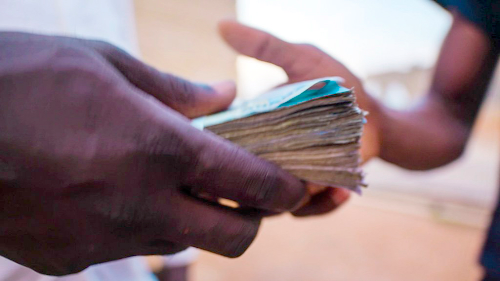
Vote buying in elections: the voter’s dilemma
For every vote that is bought, there is a giver (the political candidate), the receiver (the voter) and the financier.
However, most discussions on vote buying tend to focus on the politicians rather than the voters. Indeed, it is true that the candidates (and their financiers) may carry much of the blame because they entice voters with resources, but supply is always made in response to demand.
Advertisement
This is why Article 33(1) of the Representation of the People Law (1992) and the Political Parties Law 2000 (Act 574) criminalise vote buying for both the giver and receiver. One reason, therefore, that the practice of vote buying has persisted and degenerated to this state is that the electorate demands compensation for voting in elections.
Party funding
Unlike in advanced democracies where party members and sympathisers fund the activities of political parties, the case is rather the opposite in Ghana.
Generally, not only do party members not pay dues or subscriptions to fund the activities of their parties; the electorate (both as party delegates and as the general electorate) also demand money from candidates and aspiring officeholders before voting for them.
In fact, as the electorate complains about the corruption of our leaders and their ineffectiveness in solving the nation’s developmental challenges, many politicians also lament about the constant demand for remuneration by voters before casting their votes.
We must query why the electorate demands, or at least accepts, bribes from politicians before they cast their votes, especially when it is an illegal activity. Using the concept of Market for Lemons propounded by George Akerlof in his 1970 paper, “The Market for Lemons: Quality Uncertainty and the Market Mechanism”, this article attempts to answer the question by examining how information asymmetry reduces the quality of goods on the market. In sum, Akerlof argues that if buyers are not able to differentiate between a low-quality good (lemon) and a high-quality good (peach), then they will only be willing to pay the average price of the lemon and the peach for both goods (which will be less than the price of peach). Consequently, peach sellers will eventually be driven from the market, leaving only lemons on the market.
Transparency
Applying this analogy, let us assume that there are two kinds of politicians, that is, the good ones (who are there to serve the interest of the electorate) and the corrupt ones (who are there for private gain).
Because of the lack of transparency and honesty between the electorate and political candidates, there is information asymmetry in the political system, so that voters cannot distinguish between good and bad politicians, not knowing which candidate will serve their interest if voted into office.
In order to minimise their losses (where the candidate will fail to serve their interest after being voted into office), the voter demands compensation before the election. As this occurs, the cost of competing for the elections is hiked to levels that only a corrupt politician can afford. Eventually, a good politician is forced either to leave the market (bow out of the race), or become corrupt (find the money to pay the compensation to voters).
Thus, information asymmetry between politicians and the electorate leads to a situation where voters adversely select corrupt politicians for themselves and drive away good politicians. Per this analysis, until and unless there is symmetric information and trust between the electorate and political candidates, the electorate will keep demanding compensation before voting for candidates.
Delivering promises
This is particularly relevant in the Ghanaian context where citizens have lost hope in the political system and have become disillusioned by political parties and their candidates. The failure of successive governments of the political duopoly (NPP and NDC) to deliver on their promises under the 4th Republic of Ghana, as well as the obvious and sudden increase in standard of living of political officeholders, has eroded public confidence in the ruling class. The electorate then becomes transactional in their political dealings, and views election seasons as “cocoa seasons” — an opportunity to demand their share of the national cake and profit from the corrupted system, even if it is through illegal means.
If we aim to rectify the situation and bring back the “peach sellers” (good politicians), the nation must strive to rebuild trust and confidence in the political system, so that voters can rest assured that their representatives are there to serve their best interests. This can only happen if politicians are honest with the electorate about what they can realistically achieve, and work hard to deliver on their election promises. This will eventually increase voters’ assurance, and go a long way to reduce the demand for compensation by voters before an election.
The writer is a Researcher, African Future and Innovation, Institute for Security Studies, Pretoria.



